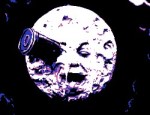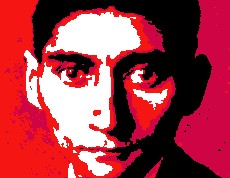Film Review

The film may not be in the league of Polanski's previous fantasy horror flicks - its biggest fault being that it doesn't take itself seriously enough - but it's a lot better than some critics would have us believe. There are echoes of the director's earlier works, both in terms of style and narrative content. Once again, we see a seemingly well-adjusted yet vulnerable hero drawn ineluctably into a dark and mysterious universe, which may be real, or may simply be a result of a slow mental collapse, à la Repulsion (1965). Are the barely glimpsed diabolical forces which propel the story real or imaginary? We can never be sure, but Polanski makes it as chilling as Hell.
The creepy, neo-Gothic stylisation with its twisted black humour - Roman Polanki's trademark - is as seductive as it is grimly disturbing. Whilst it may not be as satisfying and as sophisticated as Rosemary's Baby (1968), The Ninth Gate passes muster as an absorbing, diverting piece of nightmare-inducing escapism - a near hybrid of The Da Vinci Code and The Omen, held together by some Dennis Wheatley-style satanic madness. The only thing that spoils it are some ridiculous plot developments and a few comic excesses in the final half hour. Far from being out of his depth, Johnny Depp looks surprisingly at home in Polanski's weird universe...
© James Travers 2007
The above content is owned by frenchfilms.org and must not be copied.
Film Synopsis
Dean Corso makes a living hunting down rare books for wealthy clients. New York publisher Boris Balkan offers him a blank cheque if he can prove the authenticity of a 17th Century book of satanic spells, The Nine Gates of the Kingdom of Shadows. Only three copies of the book are known to exist, and Corso's mission is to find the two other copies and compare it with Balkan's. Corso's quest takes him to Lisbon and Paris, and he soon discovers that the book holds a strange and sinister secret. When the people he encounters on the way die - horribly - it becomes clear that someone else is eager to take possession of the three books…© James Travers
The above content is owned by frenchfilms.org and must not be copied.
Similar Films
Here are some other films you may enjoy watching:- Cat People (1942)
- Dracula (1931)
- Night of the Demon (1957)
- Nosferatu, eine Symphonie des Grauens (1922)
- The Birds (1963)
Other related links:
Film Credits
- Director: Roman Polanski
- Script: Arturo Pérez-Reverte (novel), John Brownjohn, Enrique Urbizu, Roman Polanski
- Cinematographer: Darius Khondji
- Music: Wojciech Kilar
- Cast: Johnny Depp (Dean Corso), Frank Langella (Boris Balkan), Lena Olin (Liana Telfer), Emmanuelle Seigner (The Girl), Barbara Jefford (Baroness Kessler), Jack Taylor (Victor Fargas), José López Rodero (Pablo & Pedro Ceniza), Tony Amoni (Liana's Bodyguard), James Russo (Bernie), Willy Holt (Andrew Telfer), Allen Garfield (Witkin), Jacques Dacqmine (Old Man), Joe Sheridan (Old Man's Son), Rebecca Pauly (Daughter-In-Law), Catherine Benguigui (Concierge), Maria Ducceschi (Secretary), Jacques Collard (Gruber), Dominique Pozzetto (Desk Clerk), Emanuel Booz (Baker), Lino Ribeiro de Sousa (Hotel Porter)
- Country: Spain / France / USA
- Language: English / French / Latin / Portuguese / Spanish
- Support: Color
- Runtime: 133 min
The history of French cinema

Kafka's tortuous trial of love

The best French Films of the 1920s
